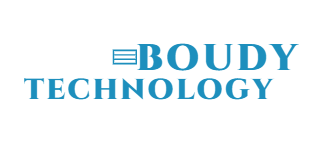American artificial intelligence nutrition company Brightseed receives $68 million in investment to use artificial intelligence to discover phytonutrients and predict efficacy
Recently, Brightseed, an American artificial intelligence nutrient company, received US$68 million in a series B financing led by Temasek. The company’s artificial intelligence platform Forager mainly explores the link between specific phytonutrients and human health.
It is reported that one of Forager's key strengths is its ability to identify commercially viable natural sources of bioactive substances in plant compound libraries.
Brightseed said it will use the funding to accelerate its discovery and clinical validation of natural plant compounds for commercialization. It also plans to launch its first ingredient to be designated as "Generally Recognized as Safe" (GRAS) under U.S. FDA rules at its North Carolina commercial hub.
To date, Forager has mapped more than 2 million plant compounds, which is 20 times the current scientific literature, and dozens of plant compounds are at various stages of validation in multiple health domains, including metabolic health, digestive health, cognitive health , blood sugar management, maternal health and immunity, etc.
Health food brands and the natural products industry lack the tools to digitize and standardize practices when it comes to exploring the potency and purity of botanical compounds. As the purity and quality of extracts improve, so do the associated costs, which the Forager platform can address. these questions.
1.Artificial intelligence: Accelerating the discovery of "healthy compounds"
Consumers are increasingly looking for natural and accessible solutions to achieve health, but the industry is hampered by a lack of tools and techniques to more deeply study nature's potential for plant compounds.
Created by Dr. Lee Chae, a former researcher at Stanford's Carnegie Institute for Plant Biology, Forager is able to systematically identify natural bioactives and map their links to human health benefits with "unprecedented depth and speed." This accelerated discovery of compounds with health benefits has potential implications for food, agriculture, nutrition policy and plant-based drug design.
Jim Flatt, CEO and co-founder of the company, said that nature has an extremely rich source of natural bioactive substances that can bring a variety of health benefits to humans, but are largely unknown, through the AI technology platform The ability to rapidly acquire and commercialize them into products for the food and health industries.
Discovering natural bioactives and exploring their health benefits is just the first step in Brightseed, which is launching clinically research-proven ingredients to elucidate the hidden potential of natural active compounds in nature.
2.Artificial intelligence Explore the bioactive substances of industrial hemp
Natural bioactive substances are small molecules that promote health, such as curcumin in turmeric, caffeine in tea, flavonoids in berries, etc. Some active ingredients even appear in pharmaceutical formulations. In fact, 2/3 of small molecule drugs are originally derived from natural compounds found in plants, bacteria and fungi. Scientists have long discovered that plant bioactive substances are essential to human health, but 99% are still in the unknown stage.
Brightseed will launch the first whole food ingredient with GRAS status later this year, with a major focus on gut health. It contains two bioactive substances found by Forager in black peppercorns and discarded industrial hemp seed husks, N-transcaffeoyl tyramide (NCT) and N-trans feruloyl tyramide (NFT), in tests found that they had an effect on liver fat in mice.
The discovery that hemp is an incredibly sustainable, carbon-captured and underutilized crop sheds light on another part of its value for human consumption. Currently, Forager has found NTC and NTF in more than 80 common edible plants, and the study found that the compound acts on the liver fat of animals through a new biological mechanism.
In preclinical studies, NCT and NFT have shown the ability to affect liver health, metabolism and intestinal health activity, and when it enters the market as a food ingredient, perhaps the company will reveal more about the research and development of the compound. Commercialization details.
3. Artificial intelligence Expansion of research facilities
The company is building a new "commercialization center" in Raleigh, North Carolina, to support the launch of its ingredients business. And its "Science Center" in San Francisco "will continue to be home to Brightseed's botanical library, world-class technology stack and compound discovery efforts by metabolomics, bioinformatics, natural product chemistry, biomedicine, and translational and clinical research teams. Provide relevant information.
The Forager artificial intelligence platform maps and predicts the health effects of plant compounds. It already has Brightseed partnering with companies including Danone, Ocean Spray and OFI to gain a deeper understanding of plants and their health benefits to drive future product innovation. For example, Brightseed's collaboration with Olam focused on finding out which varieties of black pepper and garlic provide the highest levels of bioactive substances, while the collaboration with OceanSpray Cranberries focused on studying the compounds in cranberries and their specific effects on human health.
In future plans, Brightseed hopes to expand its understanding of the world of natural products by mapping the fungi and beneficial bacteria used in fermented foods and probiotics.


Comments